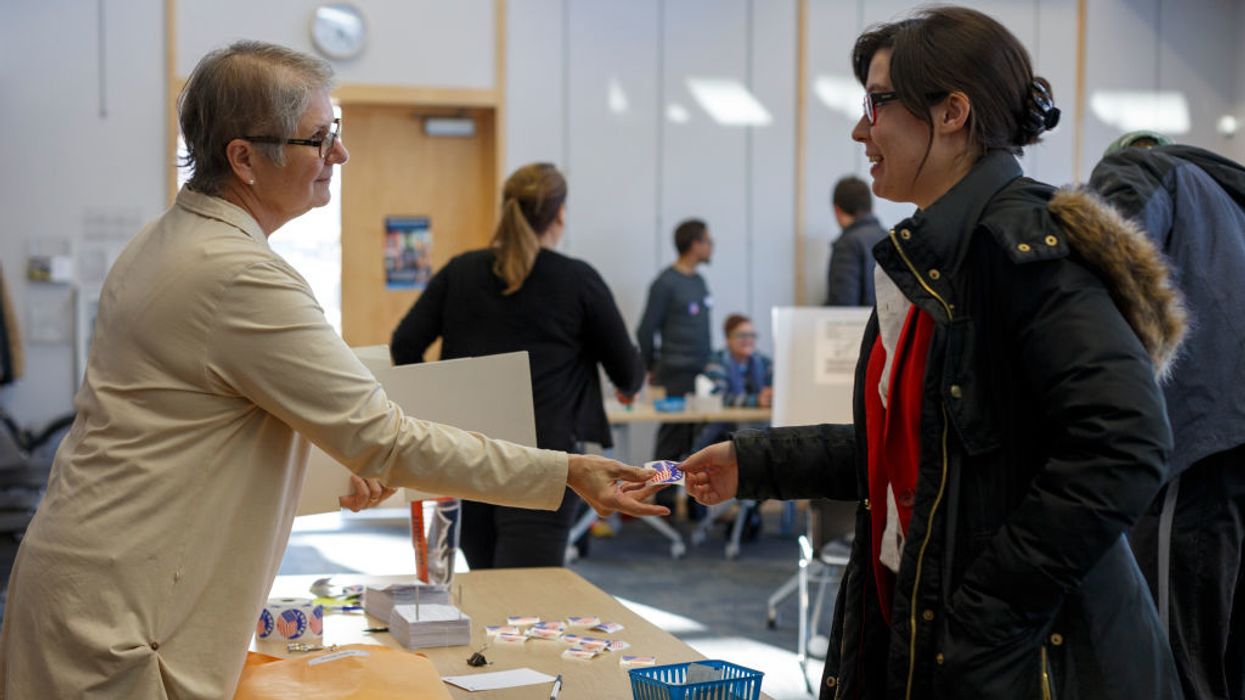The Fulcrum is committed to nurturing the next generation of journalists. To learn about the many NextGen initiatives we are leading, click HERE.
We asked Nathaly Suquinagua, a bilingual multimedia journalist with a B.A. in Journalism and a minor in Dance from Temple University, and a cohort member with the Fulcrum Fellowship, to share her thoughts on what democracy means to her and her perspective on its current health.
Here’s her insight on the topic.
Democracy can mean many things, especially given the state of the world over the last few months. That word is unraveled into multiple categories, and what it also means to the people closest to you. To me, democracy means equality, representation, and the chance to build a better world together. Having the opportunity to vote and elect people who share the same values as the individual allows for a genuine decision about who has the best intentions for what matters most and what is crucial in civic engagement.
Being a first-generation American with my immigrant parents from Colombia and Ecuador to me also means voting is more than a personal choice; it is a way to represent my family that doesn't have a voice at the ballot box. This perspective brings the meaning of democracy into focus and raises an important question: What does democracy truly mean for those who can’t vote but still call this country home, like my parents?
Speaking with Lauren Cristella, president and CEO of the Committee of 70, a 121-year non-partisan, nonprofit based in Philadelphia serving the commonwealth, focusing on making sure that the elections are free, fair, safe, and secure, mentioned that our system of government among the people is at a historic low.
“I think all the polling that we've been seeing recently, especially among people like 35 and younger, is really troubling that they don't have faith in our system of government. They don't believe that democracy is necessarily the best form of government.” Cristella said.
According to the Committee of 70, approximately 17% of registered voters in Philadelphia participated in the primary election on May 20, 2025. This makes us question why this is occurring, and now, I believe, it is more crucial than ever to vote and make a difference.
If Philadelphia continues to lose its share of the turnout, it can diminish the state's influence in national politics. More importantly, it reflects a troubling reality: I believe many people who once thought that their voices mattered by voting have given up. These people have given up on democracy, feeling unheard and powerless.
This just shows how much people have lost their faith in the system. As a voter myself who continues to vote and stay involved as an activist, I’ve felt that the power of democracy has diminished, and issues that I care about and vote for have felt overlooked and reversed. One of the most prominent issues is the immigration status in the US and deporting hard-working immigrant families, and the gutting of the Diversity, Equity, and Inclusion Act (DEI), just to name a few of the prime examples. Representation and equality are what I truly believe in, and it is what drew me to journalism. Being the voice of the voiceless and seeing others like myself in the media is what I strive to be.
Having the responsibility of thinking of my loved ones when voting has been frustrating, and it makes me wonder if the cause is not that people don’t care, but rather that they feel unheard and stuck. With so many executive orders getting cut back and gutted, it can feel like no one is listening to you. I often feel overwhelmed by the amount of information available, whether it’s on my phone or during a conversation with someone. Revisiting the core of democracy, it’s clear that meaningful conversations are key to driving change and motivating people to take action.
It's about ensuring that people have access and are informed about what's happening in their local politics. Providing translations in multiple languages can help create a sense of unity and inclusion in the political process. When people are informed, regardless of their voting status, they can still engage in meaningful discussions and even encourage others who can vote to take action.
According to Pew Research, “Naturalized citizens–immigrants who hold U.S. citizenship-who – who voted in the election split their votes about evenly, which shows that naturalized citizens are a politically diverse group and can make a difference when voting to make their home a better place to live in.
As challenges intensify both in the U.S and around the world, it's crucial to stick together and ensure that we are the ones holding people accountable for what we see is wrong. Whether sharing your story, voting, or even reporting issues online, having that sense of community is essential for you and for the people who may not have the luxury of voting and having their say in the place they call home.
I believe that there's some hope in all this; it's the people who care that give me hope about democracy and organizations like the League of Women Voters and the Committee of 70. Doing little things is a huge help in promoting democracy and ensuring unity in all this. Being able to discuss government and democracy, even among grade school-age children, is important to ensure that people who can, can have a say in it by voting and making a difference in local politics. I believe that this is what America is all about: being able to express your concerns and being united, regardless of one's political stance.Nathaly Suquinagua has reported for Billy Penn/WHYY, NJ Urban News, The Philadelphia Inquirer, and Slice of Culture, covering community, culture, social issues, and public interest stories. As a first-generation Hispanic journalist, she’s dedicated to telling underrepresented stories with depth and cultural nuance.




















